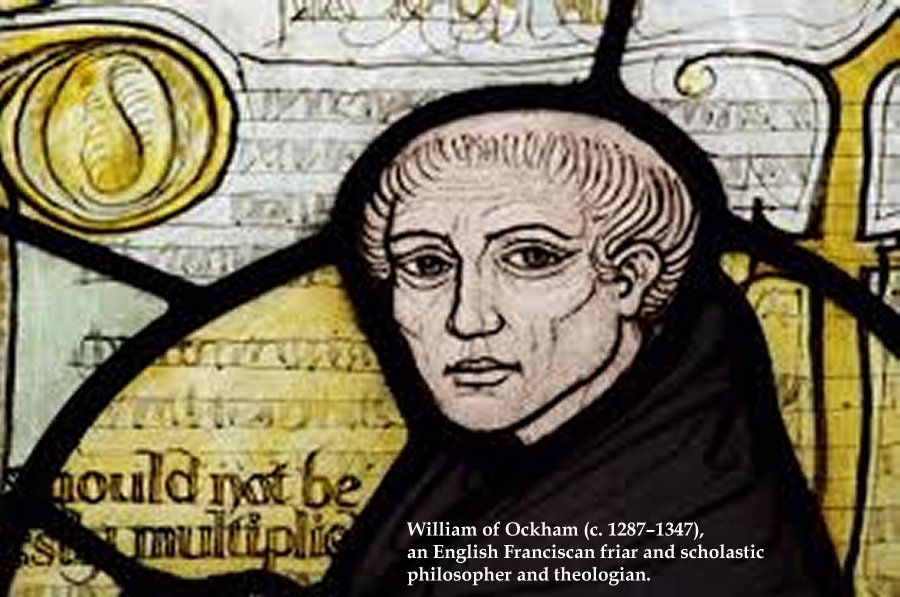無駄な説明をそぎ落とすーsinple is the best がこの哲学者の原則:オッカムの剃刀。いわゆる断捨離ですね。
これは、小説にも言えて、前置きが長々続くと疲れてしまう。本題にたどり着いて、やっと没頭する私にとっては前置きは最小限にして頂きたい。
つい最近読んだ、辻仁成著の”サヨナライツカ”はまさにオッカムの剃刀でした。スパッと切り落とし、突入してますから。もう最後は感動で涙を流してしまいました。
話がずれましたが、朝礼とか、結婚式のスピーチとか、、、、長々ととりとめのない話を聞かされるのは勘弁願いたいです。
2023.5.16 level 8
The Simple Option: What Is 'Occam's Razor'?
シンプルな選択:オッカムの剃刀とは?
In his poem The Road Not Taken, Robert Frost wrote: "Two roads diverged in a wood, and I — I took the one less traveled."
The Road Not Takenという詩に、詩人Robert Frostは書いた。”森の中で道が二つに分かれていたー私は人が通ってなさそうな方を選んだ。
Frost was a poet, but *had he been a scientist, perhaps he'd have considered the principle of "Occam's razor" and taken the other road instead.
もし科学者でいたなら"Occam's razor"の原理を信じ、もう一方の道を選んでいただろうが、(一般的思考では人が多く通った道の方が安全だから)Frostは科学者ではなく、詩人であった。
*倒置文のため、ifが省略されている仮定法
It may sound like the name of a heavy metal band, but Occam's razor is an idea that has been around for hundreds of years.
Occam's razorはヘビメタバンド名みたいだが、何百年も彼の考え方が受け継がれている。
Also spelled O-C-K-H-A-M, it's named after 14th century English philosopher William of Ockham. Basically, it says that when you have two different ideas that could explain the same thing, the simplest idea is more likely to be correct.
14世紀の英国の哲学者はOckham オッカム(地名)から名付けられた。
あることが起きたとして、ふたつの考え方がある時、ーシンプルな考え方の方が正解に至りやすい。ーという原則。
For example, if you wake up to find all your favorite cookies are gone from the cupboard, while it's possible that someone broke into your house and stole them, it's more likely that one of your family members ate them in the night.
例えば、戸棚からクッキーが無くなっていたとする。誰かが家に忍び込んだか?家族の誰かが食べたと考えるのがふつう。
Ockham wasn't the first to have this simplifying idea, but he mentioned it so often and used it so sharply — "cutting away" the complicated parts of ideas he didn't need — that it came to be known by his name.
Ockham が初めて、この容易な考え方をしたのではなかったが、彼はよくその考え方を述べていた。シャープな切れ味で使ったー彼が必要としてない複雑な部分はすっぱり"切り捨てる”のだ。だからオッカムの剃刀として知られている。
画像:messagetoeagle.com
Some of the most famous scientists have used variations of Occam's razor, including Isaac Newton and Albert Einstein.
有名な科学者たち、ニュートンやアインシュタインもオッカムの剃刀の原理のバリエーションを使ってきた。
Stephen Hawking even applied it to his study of the laws of the universe, "cutting away" things humans could never know and focusing on the things we can observe.
ステファンホーキングは宇宙の法則の学説にも応用した。人類がわかり得ないないことを切り捨て、観察できることに注目する。
But Occam's razor is not foolproof.
しかしその原理はきわめて簡単にはいかない。
For example, doctors in training are often told: "When you hear hooves, think of horses, not zebras."
医者の訓練の場合が例に挙げられるーひずめの音を聞いたとき、🐴馬か、🦓シマウマか。
That is to say, if a patient comes in with a cough, it's more likely to be something common like a virus — or a horse — than something uncommon like a serious illness — or a zebra.
患者が咳をしてとするー一般的なウィルスか何かだろう🐴と考えるほうが、稀な病気🦓だと思うよりもふつうだろう。
That's applying Occam's razor — favoring the simpler explanation for the symptoms. But of course, that's not always going to be the right answer.
オッカムの剃刀の原理に当てはめれば、症状を説明できそうな方に偏る。しかし、いつも正しいとは限らない。
And that's why Occam's razor should be seen as a tool, not a rule — the road less traveled has advantages, too.
だから、この原理は道具として有効で、規則としては使えないー人通りのない道が有利であることも同様である。(どちらが有利か、正しいかはわからない。)
記事引用:
